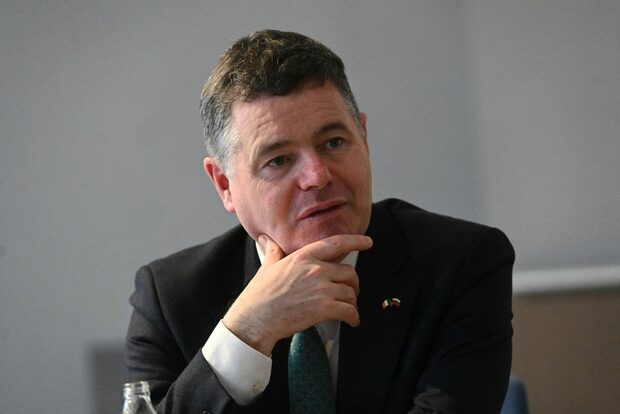Anyone who has dealt in any business in Bulgaria in the last decade and has had a contact with public procurement knows that the "screening" of candidates is rarely based on real merits and demerits. This is what many Bulgarian municipalities do - or even, more brutally, they hold tenders with a single participant. But this is such an obvious sign of fraud so municipalities prefer to hold tenders with more candidates to cover their tracks. The result, however, is the same. This has become such a popular practice that it appears to have reached system-threatening proportions.
A report by the Finance Ministry, made when ex-minister Assen Vassilev was in charge, and received by the Capital Weekly, proves that the problem was identified explicitly and is much larger than thought.
The report explored the 27 largest municipal contracting authorities in Bulgaria and found that as many as 58% of all tenders were either a one-candidate competition or a race in which all candidates but one were eliminated before the start. The research is only based on the electronic public procurement register, which started operating in 2020, so it covers less than a year and a half. However, the result is unequivocal: more than half of the tenders and almost two-thirds of the municipalities' money are distributed questionably (see the chart).
The deputy finance minister responsible for the report, Andrey Tsekov, confirmed its findings to the Capital Weekly. The media also checked the public procurement tenders of these municipalities in 2019, before the launch of the electronic register, to see if there is any difference. The figures are conclusive - the three municipalities that the Capital Weekly have checked used this mechanism in more than 50% of their tenders. For 2020-2022, the public tenders held this way distributed 750 million levs.
A bomb under EU funding
This is a huge problem for the whole system of distribution of public money. But the effect of this report, if it becomes public, would be devastating for the system of distribution of European funds as the EU is the only external supervisory body.
In the report, only 15% of single-bid tenders are distributing EU funds, but this is mostly because these funds have stopped flowing in since 2020. Simply said, after seeing this report, Brussels will have many questions to ask Sofia. As a first measure, it will have to stop the flow of money it sends here until it checks the audit and control system. This would be a budgetary nightmare at a time when the Bulgarian economy expects to receive billions of euro under the Recovery and Resilience Facility.
This explains why the report never became public, although Tsekov spoke about it during sittings of parliamentary committees and hearings.
"The report was presented to the Minister of Finance on April 12, 2022. A copy of the report was also sent to the Audit of EU Funds Executive Agency and the General Directorate Regional and Settlement Policy of the European Commission. They later expressed concern about the facts. The report was also sent to the European Prosecutor's Office, Tsekov told the Capital Weekly.
What the numbers show
Of course, not every single-bid competition should be considered intentional - there are significant differences between municipalities. Some of them, such as Ruse, Smolyan, Shumen, Vidin and Veliko Tarnovo, employ this "tool" extremely often, with the percentage of this kind of procurement standing between 70% and almost 90% of all tenders (see charts).
Others, such as Silistra, Pazardzhik and Dobrich, are at the other extreme with less than 40% of all tenders awarded after a single-bid competition.
More important, however, is how much money is distributed in this way as a percentage of the total. Ranked according to this criterion, municipalities such as Shumen, Veliko Tarnovo and Smolyan once again come out on top, but this time Pernik and Razgrad also appear. The case of Pernik is particularly interesting, where "barely" 60% of all orders are awarded after receiving one offer, but on the other hand, as much as 91% of the available funds are distributed in this way. The situation is similar in Razgrad, Varna, and Plovdiv.
Why is it a problem?
Any auditor will explain that when doing a bidding contest in an open market, getting just one bid is an indicator of fraud. The Audit of EU Funds Executive Agency, whose task is to investigate what is happening with European money in Bulgaria, confirmed that the single-bidder contest is among the most important fraud indicators at the European level. "The European Commission measures the percentage of contracts concluded with the participation of a single bidder and considers that a share of over 20% of such contracts indicates an insufficiently competitive market that cannot achieve its goal of maximally good use of public resources," the agency told the Capital Weekly in an e-mailed statement. Bulgaria has 26% on this indicator and is in the "red zone" together with other countries led by Poland with 51%.
This means that if the Finance Ministry's report is accepted by the European Commission as credible for the entire system, our country will automatically come out on top in the Union on this indicator, ahead of Poland, which had its EU funding recently frozen due to a dispute with the Commission.
Everything described, of course, can only be a surprise to someone who has never been to Bulgaria. The Capital Weekly and other Bulgarian media outlets have written over the years about dozens and hundreds of contracts awarded on the basis of custom-made criteria to suit a particular candidate.
Anyone who has dealt in any business in Bulgaria in the last decade and has had a contact with public procurement knows that the "screening" of candidates is rarely based on real merits and demerits. This is what many Bulgarian municipalities do - or even, more brutally, they hold tenders with a single participant. But this is such an obvious sign of fraud so municipalities prefer to hold tenders with more candidates to cover their tracks. The result, however, is the same. This has become such a popular practice that it appears to have reached system-threatening proportions.
A report by the Finance Ministry, made when ex-minister Assen Vassilev was in charge, and received by the Capital Weekly, proves that the problem was identified explicitly and is much larger than thought.












